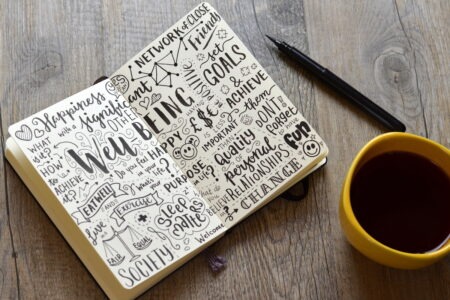How often can you relate to the feeling of being overworked or perhaps stretched to your limit and nearing your boiling point? Today more than ever, we’re being tested in ways like we never have been before. However, with that in mind, there’s no better time to take back ownership of your wellbeing and make that change really stick.
Sounds simple right? Yet why do so many of us still struggle to do so?
Controlling the uncontrollable
In our day to day lives, our wellbeing is impacted by many circumstances, from getting stuck in heavy traffic and missing work deadlines to facing technological failures like our laptop not turning on in the morning. But how many of those things are within our control? And how many are not?
Research has suggested that wellbeing is primarily nurture (determined by our environment) as opposed to nature (determined by our genes) with studies showing that only 36% of variation in our wellbeing can be attributed to genetic factors*. In plain English, this means how we feel each day is more about what happens to us and what we do with that information. The more we feel that we can influence our own wellbeing, the more likely we are to feel happy**. Recognising those factors that are within our control and those that are out of our control can act as the first step in owning our wellbeing. Without being aware of them, we can’t begin to influence what healthy thoughts, attitudes and behaviours we should grab onto and what unhealthy ones we should let go of.
Grabbing hold and letting go
Imagine starting work on a Monday morning and your boss asks for your help urgently on a task. Before you know it, the work piles on and there aren’t enough hours in the day to achieve all you wanted to. Many of us are guilty of diving in and adopting the ‘go, go, go’ mentality despite this being proven to be ineffective. Research has shown that by letting go of those ineffective behaviours and instead deploying strategies focused on your mind, body and environment, you’re much more likely to be productive and have a balanced state of wellbeing***.
But in order to deploy those strategies effectively, it’s fundamental that we take a measure of our current wellbeing. It’s only then we can truly begin to understand our wellbeing state and know what strategies will effectively develop it.
Remember, wellbeing isn’t a luxury, it’s a necessity. So how might you start to take back ownership of yours today?
Check out the wellness courses available from Lane4 in the OpenSesame catalog.
About the author:
Shalina is a Consultant with vast experience in occupational psychology and is part of the Digital Learning Team at Lane4. Lane4 understands the psychology of people performance. Their approach develops inspirational leaders and managers who can drive performance in a volatile and uncertain world, equipping them with the skills and mindset to achieve things they never thought were possible.

*Bartels, M. (2015). Genetics of Wellbeing and Its Components Satisfaction with Life, Happiness, and Quality of Life: A Review and Meta-analysis of Heritability Studies. Behavior genetics, 45, 137-156.
**Quadros-Wander, S., McGillivray, J., & Broadbent, J. (2014). The influence of perceived control on subjective wellbeing in later life. Social Indicators Research, 115, 999 –1010.
***Pink, S., Fors, V. (2017) Being in a mediated world: Self tracking and the mind-body-environment. Cultural Geographies 24(3), 375–388.




